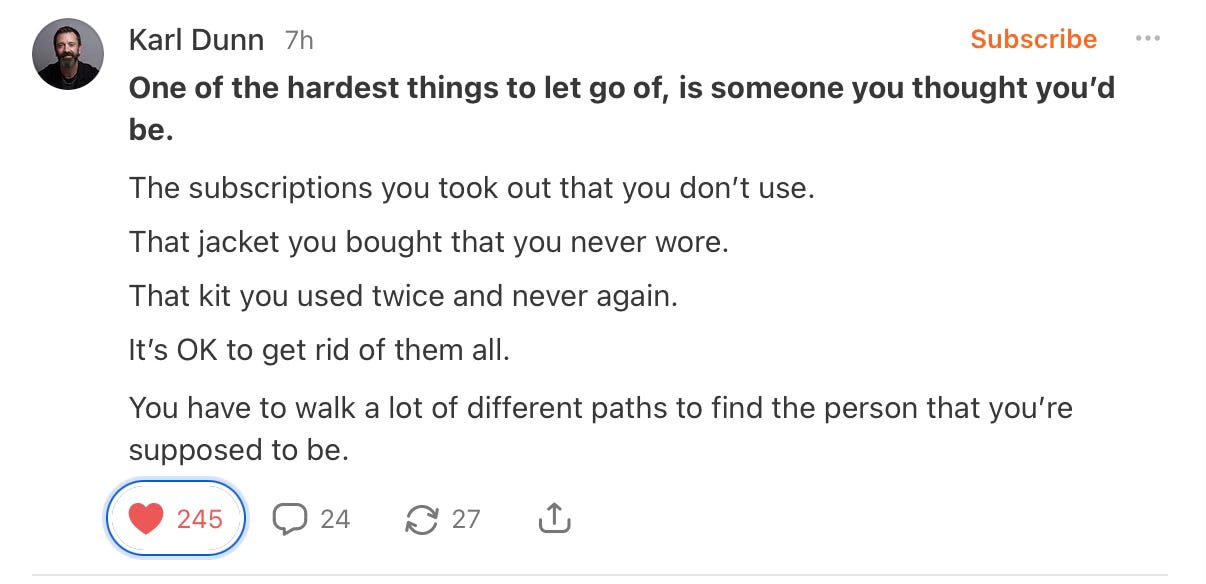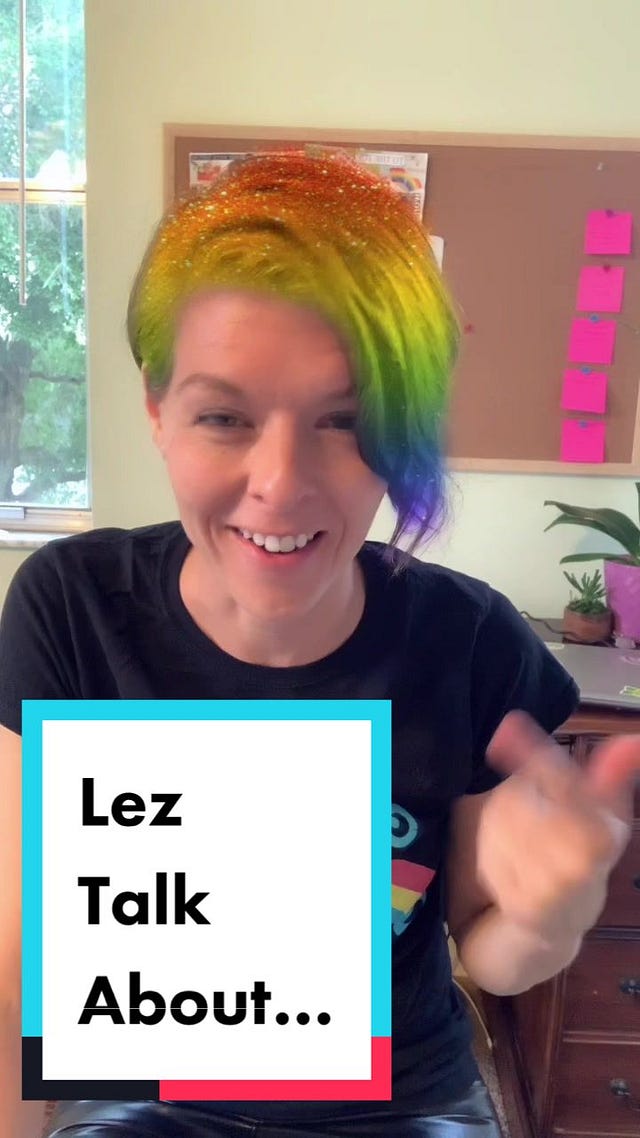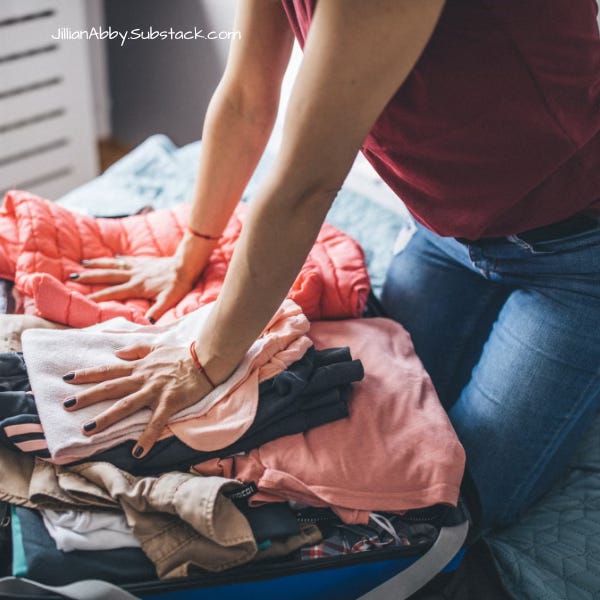Dear Queer Abby,
I came out in the past year and have reached the point where I'm moving out of the home I've shared with my soon-to-be ex-husband for the past 12 years. I'm finding that I'm having a really hard time deciding what to keep and what to take.
On one hand, I don't want to give up anything because I know that financially it's going to be a struggle for me to replace everything, like dish sets or the art on our walls, so I want to keep it so that my place doesn't feel bare. On the other hand, I am craving a new, fresh start and don't want anything that carries sentiment from my past life.
How do I set up a comfortable new space while not just dragging along everything old with me?
Moving On in Memphis
Dear friend,
Can we talk about grief? So often we want to dive into the celebration of the new and next, and yet we can find ourselves bypassing some very real feelings of grief and hurt that come with leaving behind a life we thought we’d have (even if it’s not a life we really wanted).
I am celebrating your move… truly. And I also want you to know that I (and the rest of our community) will hold space for you in what is a time that is often filled with a cauldron of opposite emotions. There is the joy of moving into your truth. There is a pain to moving on from your past life. There is a satisfaction in setting up a space for yourself. There is guilt for giving up a life that was “good enough.”
I saw this quote on Substack the other day and I couldn't help but nod my head in agreement:
Who Am I Now?
One thing I didn’t realize when coming out later in life is what kind of identity crisis it would present. Many of us go through the experience of “delayed adolescence,” where we want to completely burn down the past and run wild like we maybe should have during our teenage years. If shortly after coming out, you considered drastically cutting or coloring your hair, piercing parts of yourself that weren’t even a thought a year ago, or buying clothing that looks like it came from Avril Lavigne’s closet, you may have experienced delayed adolescence.
There’s nothing wrong with going through delayed adolescence. It’s part of the process of learning about ourselves and defining our identity. There are said to be six stages of coming out, which I won’t go into here, but you can Google it or check out this short blog. I mention this to say that who you were, who you are today, and who you will be in the future may feel like very different people. It’s a good framework to keep in mind as you go through your belongings to decide what earns a continued place in your life and what gets to be passed along for someone else to love and enjoy.
The Sorting Process
Everybody is going to have their own way of going about things. My ADHD brain tends to wire toward “What is the easiest thing I can do to get a hit of dopamine for completing the task?”
Start with your Neutral Needs– These are the items in your house that likely don’t hold any positive or negative feelings for you, and you regularly use them. Things like hairdryers, watering cans (for my plant parents out there), baking sheets, a garbage can, etc. If your move isn’t urgent, maybe just start by making a list of what household items you use in a day and add those to your “Needs” packing list.
Swing out of neutral and to the extreme of Must Haves– These are the items you feel a strong emotional charge toward or that hold a lot of sentimentality. Perhaps it’s your grandmother’s doily collection, a painting your child did back in preschool, the mug that fits just perfectly in your hand, or the windchime you were gifted that makes you so happy each time it clangs. Sing to yourself “These are a few of my favorite things…” (or don’t) as you swirl through space and time collecting the items that make your heart oh-so-incredibly happy. These will be your comfort items on the road ahead.
Flip to the opposite end of the spectrum with your Don’t Wants– These are the things you KNOW you do not want to carry with you into the next stage. Often there are items that are either sentimental to your previous relationship (like wedding gifts), are your ex’s addition to the home (and therefore shouldn’t really be up for consideration as something you could take), things you don’t use or forgot you had, or things that don’t fit with your identity now (adios Anne Taylor Loft polyester blend work pants).
What you’ll be left with are those question mark items that you’re not really sure what to do with. It may be things like bedding, furniture pieces, artwork, plates, and silverware, or recreational items (like the camping gear from your previous trips together). These are often more expensive items that you have to divvy up with your ex and will likely have to replace if they don’t come to your next home.
Before you even start the convo with your soon-to-be-ex, which can often be a challenging discussion, try to get clear on what you want from these items and why. There is no reason to argue over items that you don’t actually want to have in your new space in the first place. Get clear.
Money Matters-ish
Financial fears were a huge driver for me, as well, in deciding what to keep and what to surrender. He had the corporate job. I was starting fresh. He had the supportive family to help him redecorate. I was still trying to figure out who had cut themselves off from me and who just didn’t know what words to say.
I feel like so much of this process has to do with mindset. Let’s say that you’re pretty sure you don’t want your dishware because it was a wedding gift. Let’s also say that you don’t have the funds to buy a whole new set for yourself and would have to eat off of paper plates or dollar store melamine. If eating off of those will make you feel resentful (“He got the good stuff and I am stuck with this!”), then you may be further ahead keeping your old plate set until you can replace it.
If, however, you can look at your paper plate and think, “Wow, this is the next temporary step in moving my life forward. I’m so proud of myself. BONUS, I don’t have to do dishes tonight!” then you’ll keep yourself in a good energetic space to handle other challenges that may arise.
Understand that your financial position may only be temporary and, regardless of your income level, you choose where those dollars go. If you can keep yourself feeling good about this financial position being temporary, you may also be able to keep your creative brain open to new possibilities to decorate.
For example, could you keep some of the frames from your previous home decor but create your own artistic designs to fill them now? Could you take your pillows but buy or make new covers for them? Could you search on Facebook Give/Donate sites, at your local thrift shop, or on eBay for new-to-you items to fill in the space? Could you ask your friends to alert you over the next few months if there is anything they’re considering donating from their home (to give you first dibs)?
Lastly, never underestimate the power of paint or an inexpensive plant (looking at you, pothos and spider plants) to shift the feeling of a space.
Regardless of how you feather your nest, you should be proud that this nest is yours and is a huge step in moving into the life you’re seeking. Keep your heart soft, your mind open, and your feelings full of self-compassion. You will create a beautiful space just by being in it.
With so much love,










